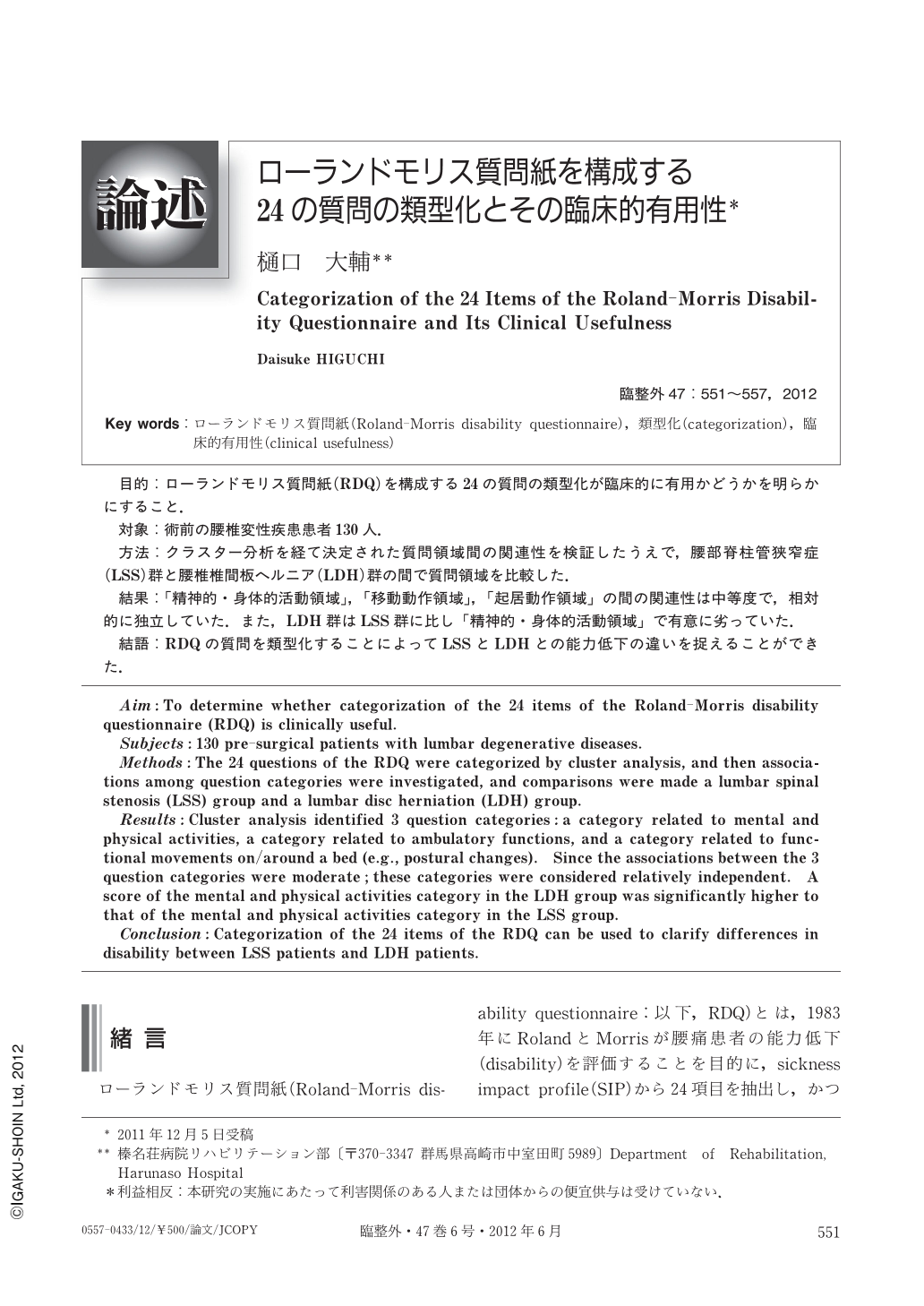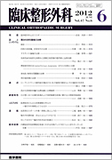Japanese
English
- 有料閲覧
- Abstract 文献概要
- 1ページ目 Look Inside
- 参考文献 Reference
目的:ローランドモリス質問紙(RDQ)を構成する24の質問の類型化が臨床的に有用かどうかを明らかにすること.
対象:術前の腰椎変性疾患患者130人.
方法:クラスター分析を経て決定された質問領域間の関連性を検証したうえで,腰部脊柱管狭窄症(LSS)群と腰椎椎間板ヘルニア(LDH)群の間で質問領域を比較した.
結果:「精神的・身体的活動領域」,「移動動作領域」,「起居動作領域」の間の関連性は中等度で,相対的に独立していた.また,LDH群はLSS群に比し「精神的・身体的活動領域」で有意に劣っていた.
結語:RDQの質問を類型化することによってLSSとLDHとの能力低下の違いを捉えることができた.
Aim:To determine whether categorization of the 24 items of the Roland-Morris disability questionnaire (RDQ) is clinically useful.
Subjects:130 pre-surgical patients with lumbar degenerative diseases.
Methods:The 24 questions of the RDQ were categorized by cluster analysis, and then associations among question categories were investigated, and comparisons were made a lumbar spinal stenosis (LSS) group and a lumbar disc herniation (LDH) group.
Results:Cluster analysis identified 3 question categories:a category related to mental and physical activities, a category related to ambulatory functions, and a category related to functional movements on/around a bed (e.g., postural changes). Since the associations between the 3 question categories were moderate;these categories were considered relatively independent. A score of the mental and physical activities category in the LDH group was significantly higher to that of the mental and physical activities category in the LSS group.
Conclusion:Categorization of the 24 items of the RDQ can be used to clarify differences in disability between LSS patients and LDH patients.

Copyright © 2012, Igaku-Shoin Ltd. All rights reserved.


